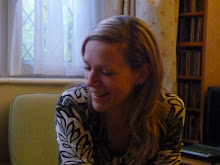 At The Open University we pride ourselves on being at the forefront of developments in distance learning. In the early days, this meant late night television programmes with mad scientists wearing kipper ties – the hallmark of what our University stood for. Today it is about high profile prime time television series such as ‘Coast’, but it is also about using the online environment creatively to deliver course materials to students in the best possible ways.
At The Open University we pride ourselves on being at the forefront of developments in distance learning. In the early days, this meant late night television programmes with mad scientists wearing kipper ties – the hallmark of what our University stood for. Today it is about high profile prime time television series such as ‘Coast’, but it is also about using the online environment creatively to deliver course materials to students in the best possible ways.As academics at The Open University, we can feel cut off from our student body, and students can find the faceless course materials a little impersonal – never knowing who really produced the things they are studying. One of the ways we can overcome this is to build on the OU’s history of audio-visual expertise, and many of our online courses now have embedded within them carefully crafted video presentations so students can meet the academics behind the scenes, learn about their research, and get a sense of that face-to-face learning they might enjoy at a more conventional university. Of course putting yourself in front of camera requires certain skills and competencies, and the confidence that you can ‘get it right’.
So staff at the OU are offered opportunities to go on intensive ‘media training’, where they can learn how to record a piece to camera. And this is why yesterday afternoon I found myself striding through a graveyard, chucking tarot cards over my shoulder and talking earnestly into the lens of a camera held by a cameraman backing away from me; both of us trying not to trip over fallen gravestones in the process.
When I mentioned to the production team that I was thinking of using tarot cards as a prop they had immediately jumped on the idea of using the graveyard as the location. I found myself feeling a little ambivalent however. I was talking about my research - and my research shows that people’s relationship with spirit, otherworldly entities and the deceased is not all about graveyards and churches. The message from my research is that, for some, the power of spirit is all around in everyday places, and not restricted to stereotypically ‘spooky’ sites or encounters.
Yet there’s no denying that gravestones and churchyards speak symbolically of spirit and otherworlds, and I have to admit that shooting on location next to the church was a lot more appealing than sitting behind a desk in the recording studio. So there I was, pacing slowly forwards through overgrown grass and grave plots, wondering whether I was going to get to the end of my piece-to-camera without falling over, wondering how we might be able to use a similar technique in our new course, and wondering of course if I was 'getting it right'… But I think above all else, I was wondering whether I should have worn a kipper tie for the day.







